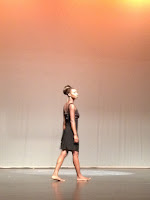.svg.png) I'm very happy today, as I finally created a page on Facebook in relation to my initiative; which is to bring all forms of support necessary to the women of Eastern DRC who are falling victim to sexual abuse due to the civil war. It's called Miss AfriCanada 2012 in Support of the Female Victims of Abuse in the DRC. And here's some quick facts about the country and its present conflict situation:
I'm very happy today, as I finally created a page on Facebook in relation to my initiative; which is to bring all forms of support necessary to the women of Eastern DRC who are falling victim to sexual abuse due to the civil war. It's called Miss AfriCanada 2012 in Support of the Female Victims of Abuse in the DRC. And here's some quick facts about the country and its present conflict situation:- The Democratic Republic of Congo gained its independence from Belgium in 1960, and the late Patrice Lumumba (a national hero who faught for our independence) was appointed as the first Prime Minister
- Lumumba's reign was ended quickly after, when he was kidnapped and assassinated by the joined forces of the Belgians, the Americans, and the Congolese opposition
- Afterwards, Mobutu Sese Seko took over leadership of the Congo,reigning in a dictatorial regime for 32 years, and renaming the country Zaire
- By 1996, tensions from the neighbouring Rwandan Genocide had spilled over to Zaire, leading Rwandan Hutus to flee their country following the ascension of a Tutsi-led government
- In turn, a coalition of Rwandan and Ugandan armies invaded Zaire under the cover of a small group of Tutsi militia to fight the Hutu militia, overthrow the government of Mobutu, and ultimately control the mineral resources of Zaire (including diamonds, copper, zinc, and coltan), led by Laurent-Désiré Kabila (a Congolese rebel)
- In May 1997, Mobutu fled the country and Kabila marched into Kinshasa, naming himself president and reverting the name of the country to the Democratic Republic of the Congo. This was the end of the first war
- Once President, Kabila asked his foreign forces to return to their countries
- The troops refused to leave and only retreated to Goma, in the Eastern part of the country, to further rebel against Kabila's government; in an attempt to maintain their power and influence
- As a result, Kabila was assassinated in 2001, and was succeeded by his adoptive son Joseph Kabila
- In February 2001 a peace deal was brokered between various rebel forces, leading to the apparent withdrawal of foreign troops
- However, the conflict was reignited in January 2002 where Uganda and Rwanda halted their withdrawal and sent in more troops
- Although peace deals have continued to surge between Kabila and the rebels, and the war is "officially" proclaimed over, it evidently continues today...
 |
| Source: http://photobyrahim.com/2012/08/18/ms-africanada-2012/ |
So, in an attempt to provide support to the female victims of this war, as Ms AfriCanada 2012 I'll be holding events and activities in their favour, leading up to one big fundraiser with the funds being put towards carrying out the initiative on-site, in the Congo. So, keep up-to-date with the Facebook page, and remember to "Like" it!














































































































































































